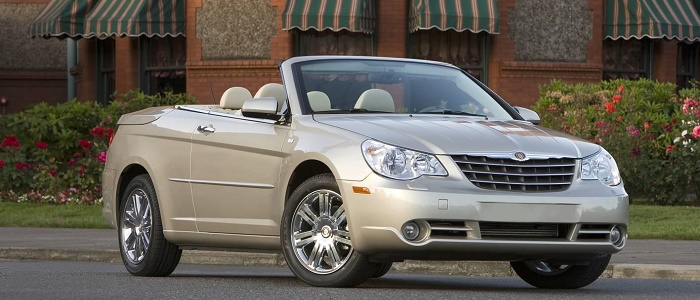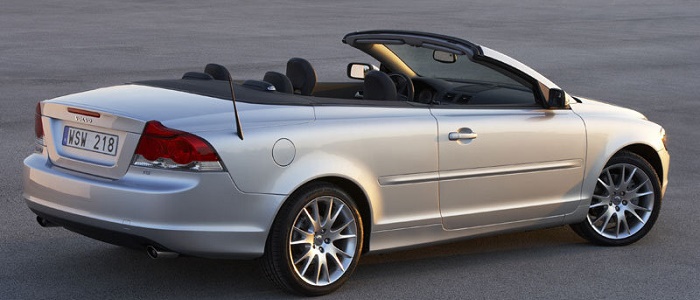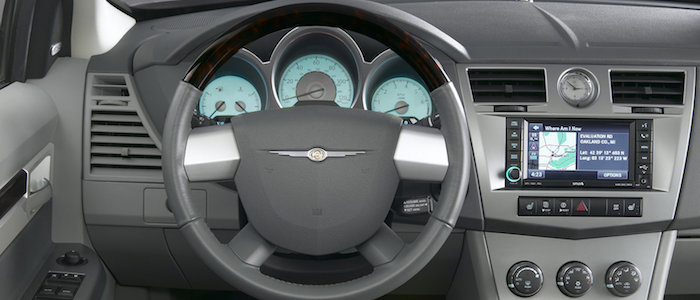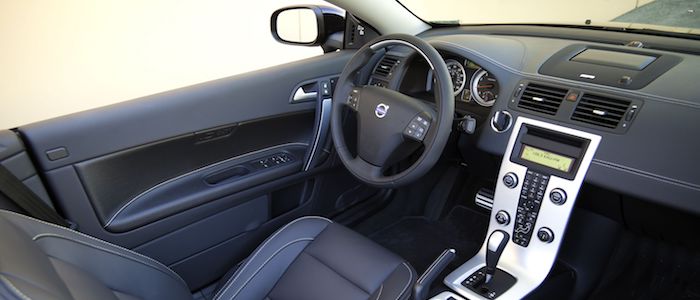Compare two cars
Compare any two cars and get our Virtual Adviser™ opinion
Dimensons & Outlines
Check vehicle history
Engine
Performance (manual gearbox)
Performance (automatic gearbox)
Expenses
Virtual Adviser's™ opinion
We are here considering two somewhat similar cars, but we can't deny some of the obvious differences. For a start, they are not even classified under the same segment, with the Chrysler being a large family car and the Volvo representing sports car vehicle class. The first one has a Chrysler-engineered powertrain under the hood, a 6-cylinder, 24-valves 186hp unit, while the other one gets its power and torque from a 5-cylinder, 20-valves 220hp engine designed by Volvo.
SafetyUnfortunatelly, neither of the two vehicles was submitted to the European New Car Assessment Programme (Euro NCAP) testing. This makes it virtually impossible for me to pick one over the other and I'm generally against buying such cars as the safety should really always come first. That aside, let's consider some other aspects which affect safety. The first vehicle is a large family car and that gives it a marginal advantage over the sports car competitor, at least that's what statistics show. Furthermore, when it comes to weight, a factor that most people underestimate, the American car offers a marginal difference of 7% more metal.
ReliabilityI don't like generalizing things when it comes to reliability, although it does seem that Volvo as a brand displays somewhat better results, at least on all of the models level. These are the official statistics, while our visitors describe reliability of Chrysler with an average rating of 4.4, and models under the Volvo badge with 3.2 out of 5. Some independent research have also placed Sebring as average reliability-wise, and C70 is more or less at the same level.We should definitely mention that owners of cars with the same powertrain as the American car rank it on average as 3.0, while the one under the competitor's bonnet gets 3.9 out of 5.
Performance & Fuel economyVolvo is undoubtly more agile, reaching 100km/h in 2.7 seconds less than its competitor. In addition to that it accelerates all the way to 240 kilometers per hour, 44km/h more than the other car. When it comes to fuel economy the winner has to be the Swedish car, averaging around 9.1 liters of fuel per 100 kilometers (31 mpg), in combined cycle. We can't ignore that 15% difference compared to the American car.
Verdict
Volvo appears just a bit more reliable, although the difference is truly marginal. The most important thing when deciding between any two vehicles should always be safety, both passive and active. In my opinion, everything taken into account, the American car offers significantly better overall protection, taking the lead here. From there things take a different direction, with Volvo outracing its opponent in any situation possible, making it better choice for boy racers. To make things even better, it consumps less fuel! All together, there's not much more to say, in this case I wouldn't even consider anything but Volvo. Anyway, that's the most objective conclusion I could've came up with and it's based solely on the information found on this website. Aspects such as design, practicality, brand value and driving experience are there for you to measure them out. I suggest you spend two more minutes in order to find out which car, based on your needs and budget, would be picked by the virtual adviser™, among thousands of similar, yet so different vehicles.































